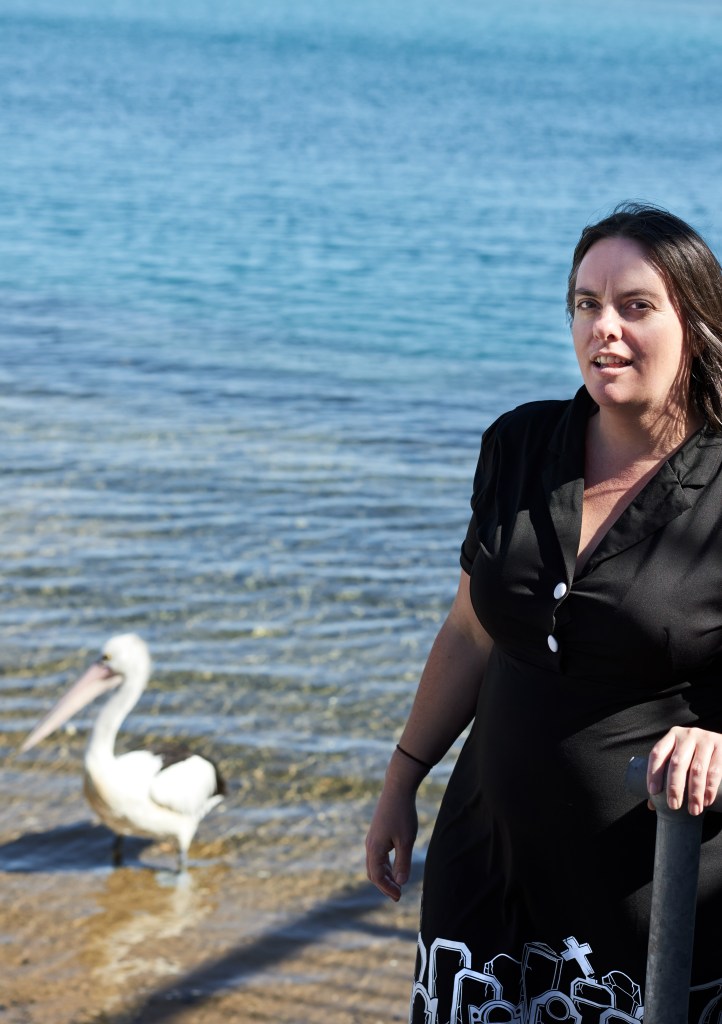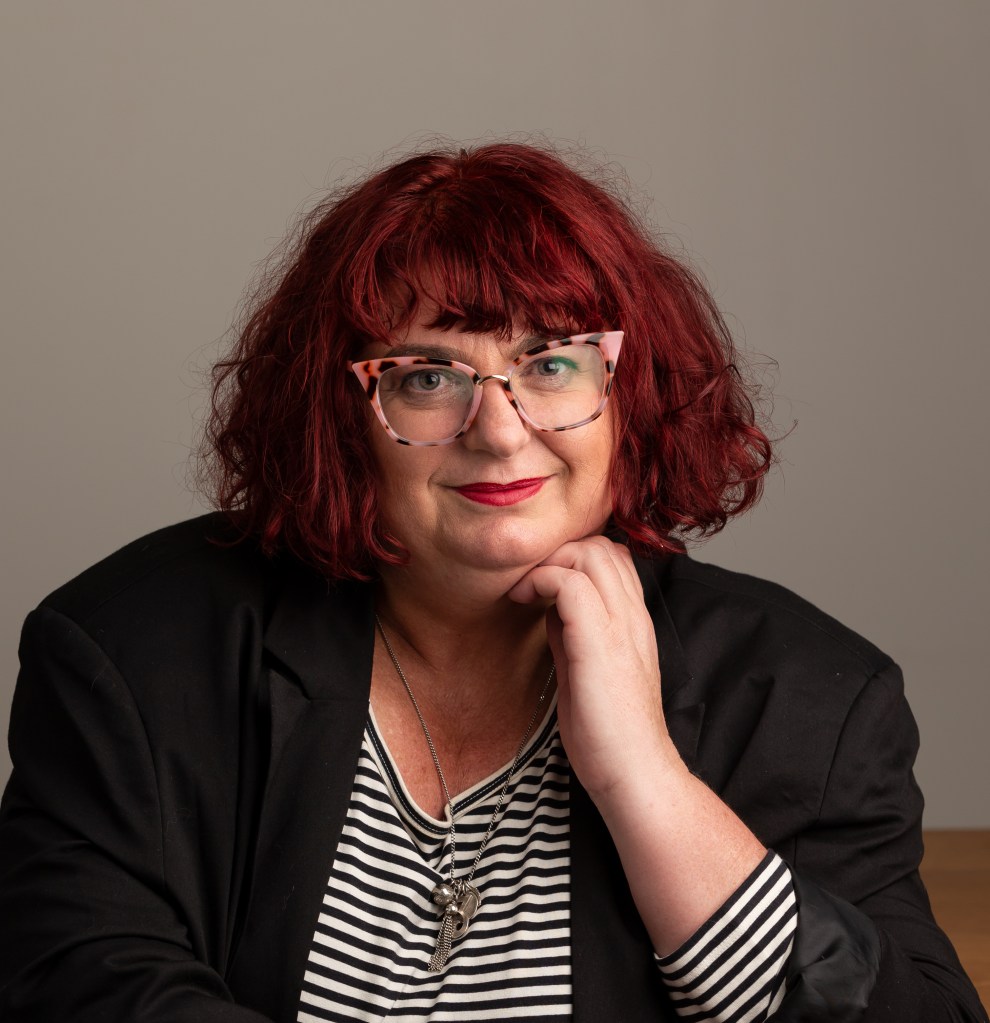It’s a well-known fact that creative writing work is ill-paid and not commensurate with the time and effort expended, but if you’re looking for a supplementary income that builds on your writing, editing and general communication skills, becoming a copywriter may be a lucrative avenue to explore. ArtsHub asks some seasoned copywriters to offer us their tips of the trade.
Be curious as well as mindful of the audience and the objective of the writing
As well as being the author of three books, the latest of which is A Kind of Magic, Anna Spargo-Ryan has been a freelance copywriter for 10 years, with a variety of jobs that have allowed her to play with the intertwined craft of writing and research. As Spargo-Ryan says, ‘My days are a mix of all kinds of weird and wonderful things: everything from educational podcasts about melons to ad copy for electric vehicles and serious climate website content. I work with clients directly and on bigger projects with agencies.’
For those not cognisant of the difference between copywriting and what she calls ‘joyful creative pleasure writing’, Spargo-Ryan points out that ‘the former always serves some business objective. A great copywriter will have good commercial instincts’.
You should ask yourself a number of questions about the objective of the writing, she advises. ‘Who’s your audience? What do you want them to do when they read this? How will we know if it’s done its job?’
Particularly for those freelancing, having a strong command of language and its deployment is essential says Spargo-Ryan. ‘You’ll be writing for many different brands/organisations in many different voices. Versatility requires a strong underlying writing skill – you need control of the basics in order to play.’
She also recommends cultivating a wide-ranging sense of curiosity.
‘So much of copywriting is being able to identify that kernel of what will grab and hold the reader and discovering how to share that story. That’s true whether you’re writing a single tagline for a sneaker brand or a white paper for a renewable energy research facility. What is the narrative? Chase it.’
Anna Spargo-Ryan
Experiment with different and niche forms of copywriting

Rebekah Lambert has been a freelancer for 12 years and is currently working with start-ups in aged care planning, end-of-life and fire education for teen girls. She has worked across print management for agencies and mental health and disability education and was the unofficial copywriter for many workplaces servicing IT brands and ‘writing everything from dating profile tips to astro-match trivia questions in the dating industry’. Lambert’s skillset incorporates report writing, blog writing, SEO, website copy, press releases, internal and external communications.
Her top tips for newbie copywriters include:
- Look for the opportunities to demonstrate your writing prowess in real terms. Write your own blogs, get used to micro-copy on places like Twitter and other social media platforms, try pro bono or volunteer projects and build a portfolio of work you can share.
- Use your powers for good. Don’t be afraid to tap into your writing powers to highlight the issues you see in the world, because it can be a great way to attract like-minded clients. Write sassy emails to agencies you’d love to work with, and make a splash in the world with your humour, intelligence and/or unique vision.
- Practice makes perfect. The more you write, the more you learn. Experiment with SEO, person-centred content design and conceptual copywriting to help elevate you out of the crowd.
- Never discount the need for writing experts. You can make a good steady living satiating the need for plain-speaking legal, medical, financial, education-based or science-based writing.
- Learned ambivalence. Writing for a client is distinct from working on your own stuff. You need to learn to invest in the work, but detach from the feedback as it’s often subjective.
- You don’t have to be a fantastic writer to have a strong fanbase or client portfolio. Reliability, adaptability and being easy to get along with will get you further as a writer.
- Be consistent. You’re only as good as your last project in this industry.
Utilise social media platforms, engage agencies, set up an accounting system and find your community
Carrie Hutchinson is a former magazine editor who now concentrates on travel and food in her copywriting, everything from ‘SEO copy for the NSW National Parks website to writing press releases for restaurants’.
Hutchinson’s tips for those starting out include ensuring that your social media and website are in order to facilitate self-promotion.
‘Get a basic website and update it with testimonials and logos of companies you’ve worked for… In your LinkedIn profile, specify if you want work in… a style of copywriting (SEO, blog writing, white papers, award submissions) or a certain field (education, wellness, travel), so that potential clients can find you. Make sure you’re posting at least once a week, and be sure to highlight what you bring to clients, rather than just your achievements.’
Carrie Hutchinson
Copywriting can be a lonely pursuit for the sole trader so Hutchinson suggests finding a community of like-minded writers for support: ‘Rachel’s List began as a website for media types, but there are more and more copywriters are there now. There are job listings, online lunch clubs and a private Facebook group where people post about overflow work. The Clever Copywriting Community is great too, and has a tonne of resources for newbies. Plus, it has a very active job board and other members pass on work they are too busy to take on.’

Hutchinson tells ArtsHub newbie copywriters with few or no clients should contact agencies to see if they use subcontractors and freelancers. ‘Often they do all the client liaison. Check out sites like Upwork and Fiverr too, but you need to weed out people who want the world but have a budget of $10.’
Speaking of budgets, there’s the mandatory but unsexy demands of accounting and fee charges to be prepared for. Hutchinson recommends setting up an accounts system ‘like Rounded and Hnry… and get people to sign off on your quotes and terms and conditions before you start a job’. If you can find a client with a retainer agreement (who pays you monthly for a certain amount of work), this kind of job is ‘gold to copywriters’ she says.
Build your portfolio
Andrea Rowe is an author of children’s books as well as a copywriter and content strategist specialising in helping not-for-profit organisations increase awareness, attract supporters and inspire action, advocacy and change. Rowe has worked for organisations including the Royal Flying Doctors, Conservation Volunteers, Coast Care, Hello Sunday Morning and Indigenous Reading Project.
For those nervous about becoming a copywriter, her advice is simple: ‘Don’t look over your shoulder at the competition, look internally at your skill set and knowledge base. Offer to write an op-ed piece for an organisation you admire for their newsletter or blog, volunteer and tag them in your social media as part of self-promotion, or create your own content that they can’t help but share.
‘They’ll take notice if you start writing about organisations that align with your values, reflect their point of difference and speak to their community or intended audience too. It’s all about building your portfolio.’
